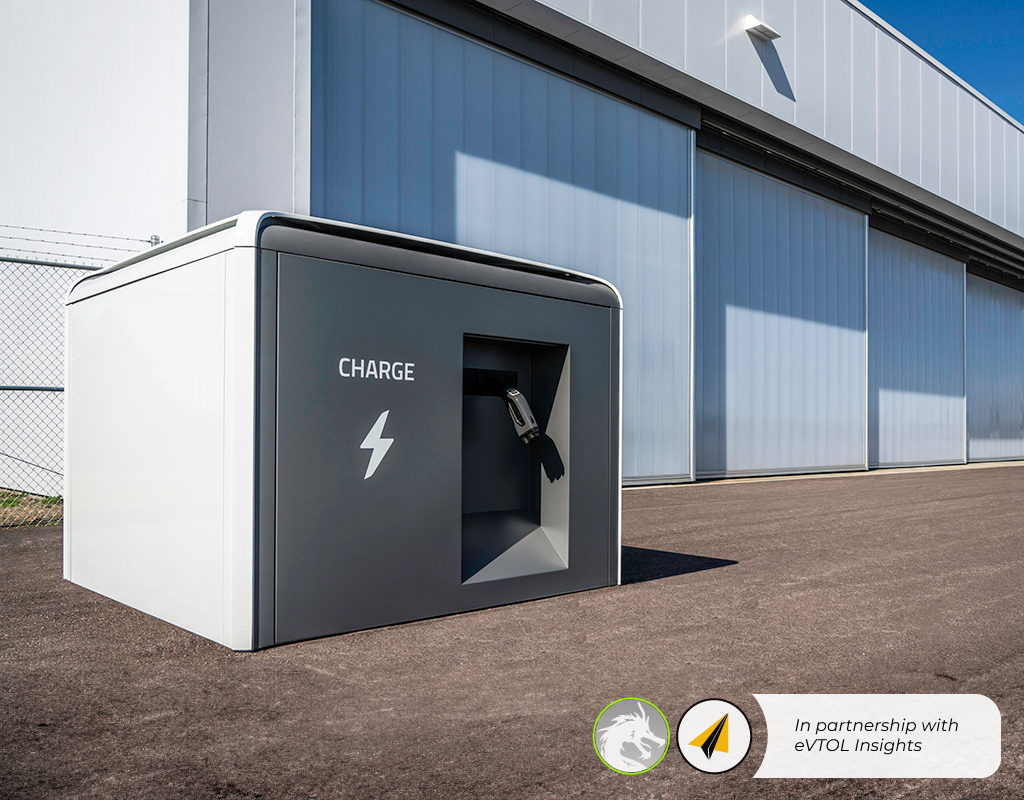
BETA Technologies has received UL certification on its Charge Cube, the latest in the company’s family of electric charging products being rolled out in a connected network across the U.S.
This certification — which was granted by UL, a nationally recognised testing laboratory — confirms BETA’s Charge Cube is compliant with safety regulations and standards. This certification follows extensive electrical, mechanical, environmental, and electromagnetic compatibility testing, including relevant portions of IEC 61000 for electromagnetic compliance.
With this, the Charge Cube can now be permitted to meet the immediate needs for electric aircraft and ground EV charging. The UL certification also drastically simplifies the permitting process for electrical utility hook-up.
Chip Palombini, BETA’s Head of Charge Product, said: “Having the only UL-certified charger designed specifically for electric aircraft provides our customers with a sense of confidence and safety in our products as they prepare for future operations. BETA is focused on the interoperable ground support equipment that will enable electric aviation right alongside the actual electric aircraft.
“To receive this certification from a nationally recognized lab like UL validates what all of us in this industry are working toward. It demonstrates that the technology is ready for the market, and our growing list of customers proves that the market is ready for this technology.”
BETA’s Charge Cube is designed to optimize for safety, interoperability, simplicity, and efficiency. The charger’s 50-foot cord is the longest of any certified charger available and it works alongside BETA’s Thermal Management System (TMS), offering increased optionality for a variety of aircraft designs and ground operation needs.
Like all of BETA’s charge products, the Charge Cube is multimodal and interoperable, utilizing an internationally recognized charging standard (CCS) to ensure compatibility with electric cars, trucks and airplanes.
CCS has been adopted globally as the charging protocol for electric aviation through the publication by General Aviation Manufacturers Association resource paper, Interoperability of Electric Charging Infrastructure, and by EUROCAE ED-308 — Guidance on VTOL Charging Infrastructure.
Palombini added: “We look forward to continuing to roll out our chargers and making our network as dense as possible as aviation companies and operators prepare for what comes next.”
The newest generation of Charge Cube will join BETA’s growing network of chargers across the U.S. and Canada. To date, BETA has certified chargers online at more than20 airports across America, with another 50+ airports, heliports, and vertiports in development.
As with its all-electric aircraft, the company’s chargers have been purchased by a diverse mix of customers, including the U.S. Department of Defense, U.S. airports, other electric aircraft developers like Archer, and global fixed base operators like Signature Aviation and Atlantic Aviation.
The growth of BETA’s charge network is designed to increase access to electric aviation. With its reduced operational energy costs and significant greenhouse gas emission reduction, electric aviation will enable regional air mobility and unlock new mission sets that allow for more efficient cargo carrying and community connections.
The charger has proved compliance to numerous UL standards, including UL 2202, Electric Vehicle Charging System Equipment (AC to DC); UL 2231–1 Personnel Protection Systems for Electric Vehicle Supply Circuits – General Requirements; and UL 2231–2 Personnel Protection Systems for Electric Vehicle Supply Circuits – Protective Devices for Use in Charging Systems, including Section 24 Electromagnetic Compatibility and IEC 6100 Electromagnetic Compatibility testing.

